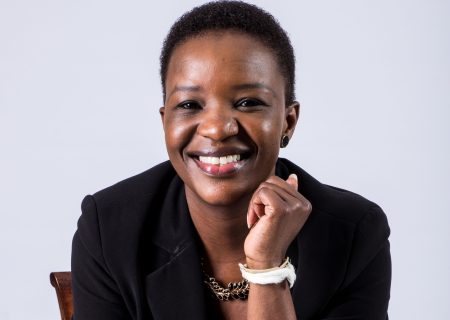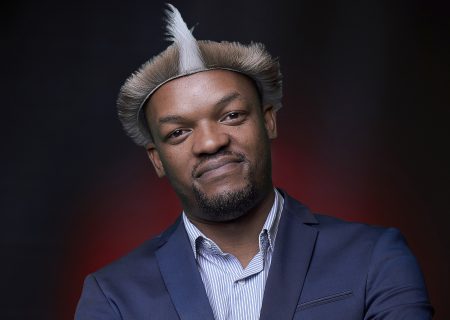You can also listen to this podcast on iono.fm here.
SIMON BROWN: I’m chatting with James Rainbow. He’s from Schroders UK. James, I appreciate the time today. Let’s start off with financial advice and trends we are seeing. One thing – I don’t know if it’s a fair reflection, or maybe just overly anecdotal – is that we’re obviously seeing financial advisors age and truthfully age out of the system, spending time in their retirement. Are we seeing a new generation of financial advisors sort of filling their spaces?
JAMES RAINBOW: I think this is one of the key questions that we’re all grappling with as an industry, which is that none of us is getting any younger but financial advisors, generally speaking, are at a later stage in their career, and we are struggling to get new entrants into the profession. I don’t think that this is an acute issue right now but I think it’s something that we’re increasingly going to have to deal with.
SIMON BROWN: And part of the challenge, I suspect, is that the generations coming through – I’m thinking millennials, I’m thinking the Gen Zs and the like – are probably looking to get their advice somewhere else. Some of that’s probably TikTok, which truthfully is a terrifying concept.
JAMES RAINBOW: To a certain extent the rise of influencers or how they are described I think is sort of helpful and unhelpful in equal measure. I don’t love the idea of widespread unregulated advice by anecdote. I think if it drives people to get professional help from qualified people maybe actually it’s not the worst thing in the world.
I do think, though, you have to assume that a new generation is going to behave fundamentally differently with its money than the previous generation – and I’m not sure that that’s the case. I think that the issues around trust and reassurance given by people taking or developing a relationship with an advisor are going to be felt as acutely by the next generation as by this one.
SIMON BROWN: I take your point, and perhaps it’s almost just a sort of shifting. As I’m thinking of TikTok, which is I’m not a platform I’m massively au fait with, but the right person on TikTok – a millennial, for example, talking to their cohorts – can actually be a benefit and get people to start perhaps thinking about investing, thinking about their retirement, whereas otherwise they wouldn’t be.
JAMES RAINBOW: I think that’s entirely correct. The more we can drive people to engage and then, once they’ve engaged, go and look for appropriate help to try and navigate what is inevitably a very complex backdrop of regulation – tax, many, many different products and services to choose from – I would say is definitely a good thing. The more engaged people are, is something that I think we should encourage.
SIMON BROWN: Yes, one hundred percent. If we change track slightly to discretionary fund managers – the DFMs – that market is obviously undergoing changes as well. What sort of trends have you spotted in the UK that could perhaps be brought to South Africa for this sector?
JAMES RAINBOW: Well, I think certainly [among] the advisors and DFMs that I’ve been speaking to in South Africa, the trends are very similar. It’s quite possible that the trend has a little more duration in the UK, but the direction is really the same. If you think about what has started this, it is advisors focusing their time and resources on what they’re good at, which is giving advice, financial planning, making sure that people have a clear destination in mind and are maintaining that path.
On management, investment selection is not typically in that skillset. It requires a significant resource. And most advice business people that I speak to just don’t have the resources available to commit to growing out a discretionary manager at scale. And so partnering with one, accessing their expertise on behalf of their clients, feels to me to be a positive development versus simply trying to do it yourself without the necessary resources and framework in place to do it.
SIMON BROWN: I take your point. On that part of the challenge and in the note you put out you talk about the choice paradox. If I go back, I don’t know, 20 or 30 years, there was a lot to invest in. But it was a much, much smaller universe – not only in terms of assets but in terms of range and the like. That really is a potential stumbling block for the new people coming into the market, but a really good point for financial advisors and for DFMs. They are the experts in the space.
JAMES RAINBOW: I completely agree with that. I think it is an … to say that the world has got much, much more complicated in almost any way that you look at it. And so making sure that we have specialists in their field who are helping clients achieve their goals, I can’t see is going to be anything other than a good outcome.
SIMON BROWN: More is better, but managing that more perhaps is the real challenge.
We’ll leave it there. James Rainbow with Schroeders UK, I appreciate the time today.
Listen to the full MoneywebNOW podcast every weekday morning here.






















COMMENTS 0
You must be signed in to comment.
SIGN IN SUBSCRIBE
or create a free account.
Free users can leave 4 comments per month.
Subscribers can leave unlimited comments via our website and app.